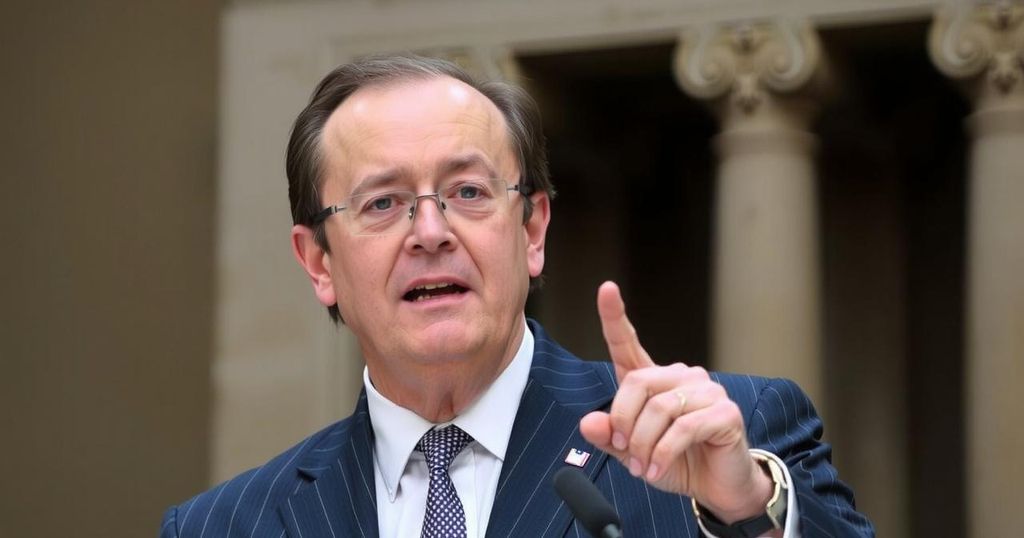Romania’s Constitutional Court Nullifies Presidential Election Amid Russian Interference Allegations

Romania’s constitutional court annulled the presidential election due to allegations of Russian interference favoring far-right candidate Calin Georgescu. This decision comes just before the runoff against centrist candidate Elena Lasconi. President Iohannis will remain in office until a new election date is set. The ruling cited extensive irregularities, raising concerns about democratic integrity and the influence of far-right ideologies as Romania faces geopolitical tensions with Russia.
On Friday, Romania’s constitutional court annulled the recent presidential election amid serious allegations of Russian meddling intended to bolster the far-right candidate Calin Georgescu. The election cancellation emerged just two days before the scheduled runoff, wherein Georgescu was to compete against centrist candidate Elena Lasconi. President Klaus Iohannis confirmed he would remain in office until the formation of a new government could establish a new election date following legislative elections that had occurred the prior weekend.
The court’s decision was grounded in findings of extensive electoral irregularities, including pro-Georgescu social media campaigns and cyberattacks attributed to Russian influence. In its ruling, the court stated that these actions undermined the democratic integrity crucial for fair elections, leading to the thorough annulment to uphold citizens’ voting rights. Georgescu, reacting to the court’s decision, condemned it as a “formalized coup d’etat” and urged citizens to stand firm in their ideals for change.
Elena Lasconi also criticized the ruling, deeming it “illegal and immoral,” claiming it erodes the essence of democracy. Observers noted apprehensions that a Georgescu victory could further entrench far-right ideologies in Romania amid increasing geopolitical tensions given the country’s proximity to Ukraine. Protests against the ruling were minimal, yet some expressed their frustrations, viewing the court’s ruling as a maneuver to alter the political landscape for losing candidates.
Additionally, the investigation into alleged electoral violations, including undue advantages through social media platforms like TikTok, was announced by anti-corruption prosecutors, signaling heightened scrutiny of this tumultuous electoral process. Political analysts characterized the ruling as unprecedented, with concerns rising over the implications for Romanian democracy and institutional integrity. Georgescu’s past admiration for Vladimir Putin has also raised alarms regarding Romania’s foreign relations, particularly against the backdrop of rising radical sentiments fueled by economic distress and the ongoing conflict in Ukraine.
The annulment of Romania’s presidential election occurs within a sensitive geopolitical context, exacerbated by concerns of Russian interference. The allegations spotlight tensions within Romanian society where political fragmentation has surfaced, notably through the emergence of far-right factions capitalizing on public discontent related to economic issues and security concerns stemming from Russia’s actions in Ukraine. The legal and political turmoil surrounding this canceled election indicates deep-seated challenges faced by Romania in maintaining democratic integrity amidst external pressures.
The cancellation of the presidential election in Romania is a landmark event that reflects significant legal, political, and social challenges in the country. This unprecedented action by the constitutional court highlights the alarming potential for foreign interference in domestic politics and has raised serious concerns about the strength of Romania’s electoral integrity and the future of its democratic institutions. The unfolding consequences and public reaction to this decision may have lasting implications for Romania’s political landscape.
Original Source: www.voanews.com








